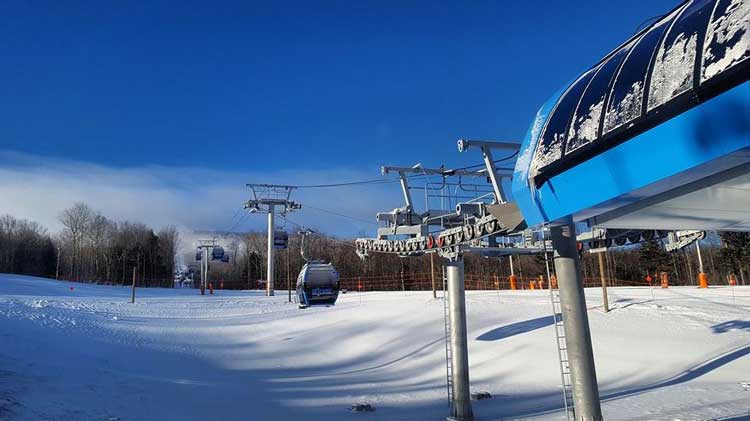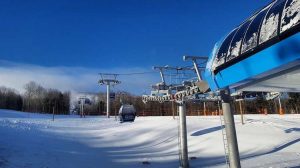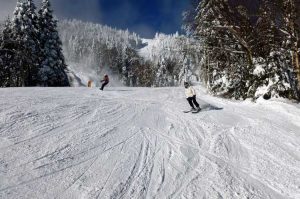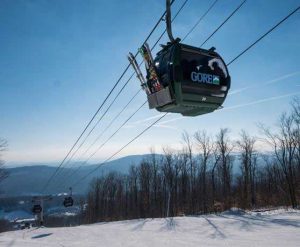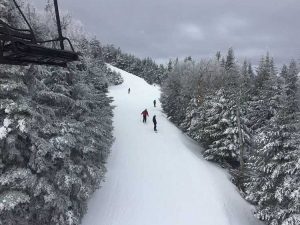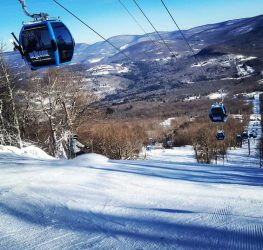The Olympic Regional Development Authority (“ORDA”) was created by the State of New York to manage and operate the 1932 and 1980 Olympic facilities in Lake Placid, and is now responsible for operating the only three publicly-owned ski mountains in New York State: Gore Mountain Ski Center (“Gore”), Belleayre Mountain Ski Center (“Belleayre”), and Whiteface Mountain Ski Center (“Whiteface”). While these mountains have excellent terrain, natural beauty, and are within an acceptable driving distance of major metropolitan areas, they have experienced stagnant or declining skier visits and income, making it challenging to reinvest in the facilities so that they remain competitive with other privately owned resorts in the industry.
The ski industry is facing numerous challenges, including the impact of climate change on annual snowfall, decreasing per capita ski visits, and a declining labor pool. However, the ORDA mountains face additional challenges, including their locations in forest preserves with environmental controls that restrict new development, limited access to capital investment, outdated and deteriorating facilities, and increased costs of union staff.
Empire State Development (“ESD”) engaged Ernst & Young and RESGroup to provide an independent assessment of the Mountains’ operations, facilities, and real estate, and to provide a strategy for improving operations, revenue, and skier days through capital investment, as well as economic development for the surrounding towns. RESGroup was responsible for Gore and Belleayre Mountains, analyzing their historic financial performance, inspecting their facilities, and interviewing management and staff. Critical capital investments, including snow making system upgrades, lodge expansions/renovations, ski lift improvements, and investment in year-round activities (zip lines, zip coasters, ropes courses, mountain biking, etc.) were identified and prioritized as opportunities to improve the economic value of the mountains. The ORDA operations, facilities, and customer experience were also benchmarked against privately operated ski-resorts located throughout the northeastern United States and Canada. Given the impact of climate change on snowfall, investments in snow making systems and year-round attractions were identified as critical to creating the highest financial return and increasing visitation while also supporting more year-round jobs for the communities’ residents.
RESGroup also conducted extensive stakeholder interviews in the local communities, talking with local real estate brokers, economic development authorities, hotel developers, property owners, shop and restaurant owners, and residents. These interviews focused on the potential for hotel development, and understanding the challenges of the local labor and housing markets. Stakeholders were also asked about the availability of retail amenities and other attractions needed to attract more skiers and summer visitors.
A key finding of our work was that the lack of hotels with ski-in/ski-out locations or within a short drive of the Mountains was a significant disadvantage compared to their peer group. As such, the mountains must rely on day-trippers, local residents, and seasonal home owners for demand, and can’t fully penetrate the much larger and more distant New York City and Boston metropolitan areas. Also, the outdated facilities (snow making, lifts and amenities such as dining), and lack of cell service (limiting social networking and communication) were found to require increased investment if the ski areas are going to remain competitive.
Based on the study’s recommendations, New York State announced additional funding for the ORDA Mountains to address their most critical capital investment needs. New York State is also exploring the potential for public-private partnerships to bring ski-in/ski-out lodging to the ski resorts.
